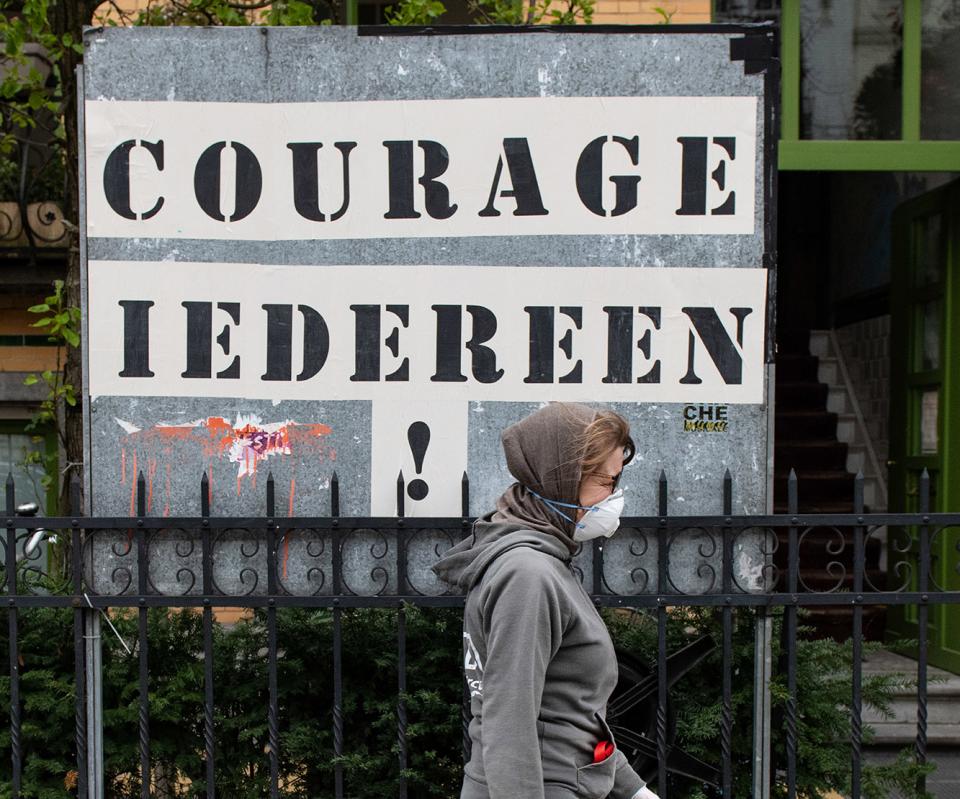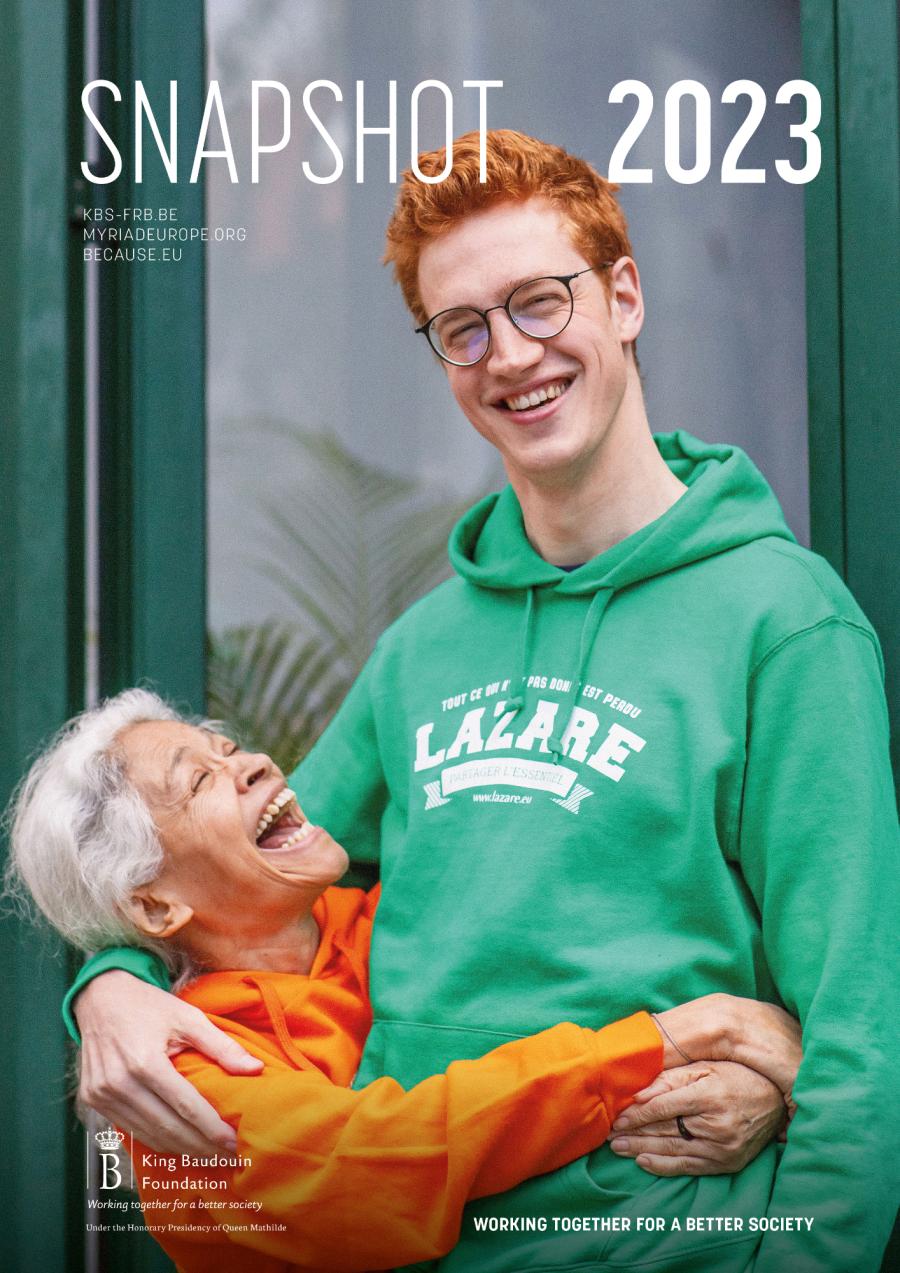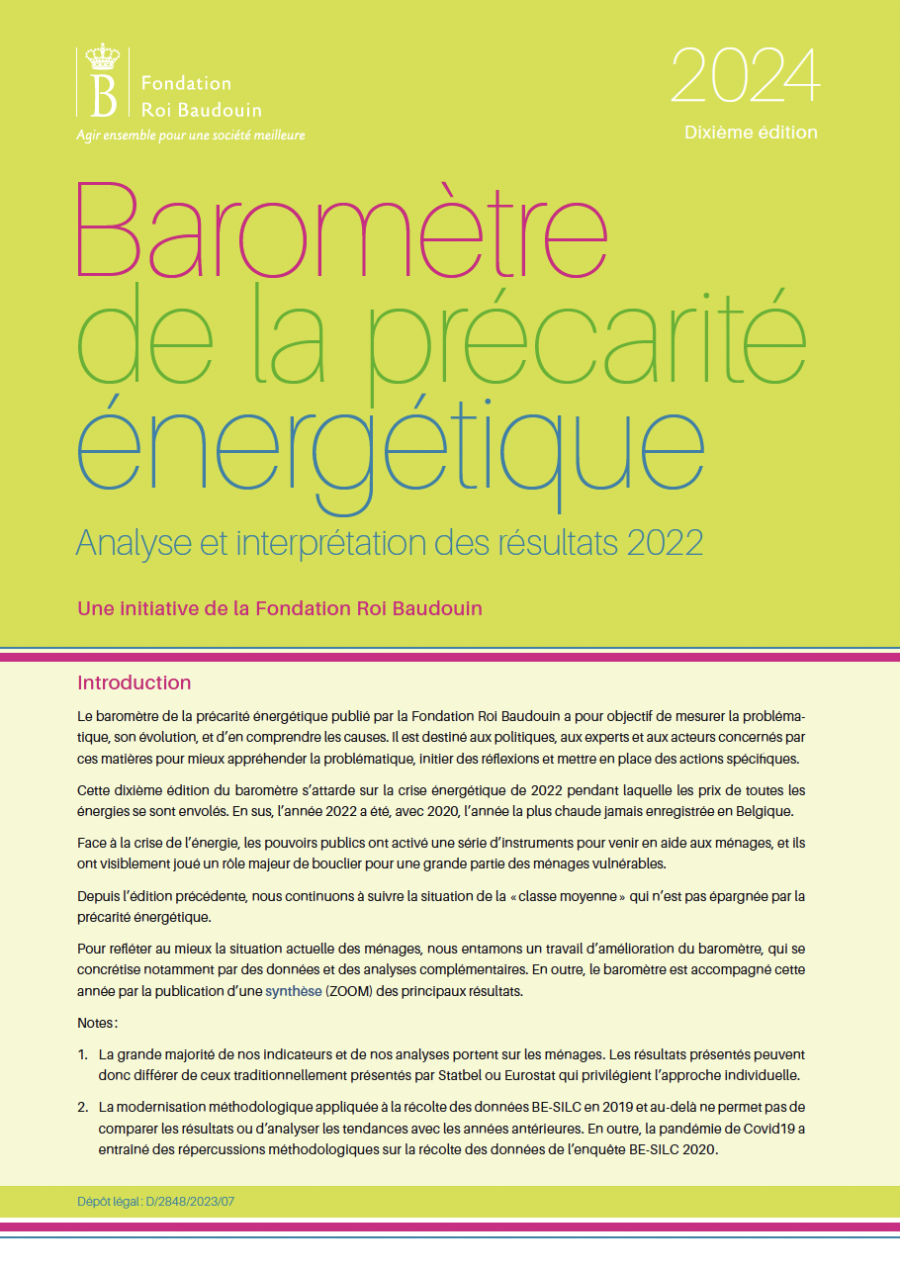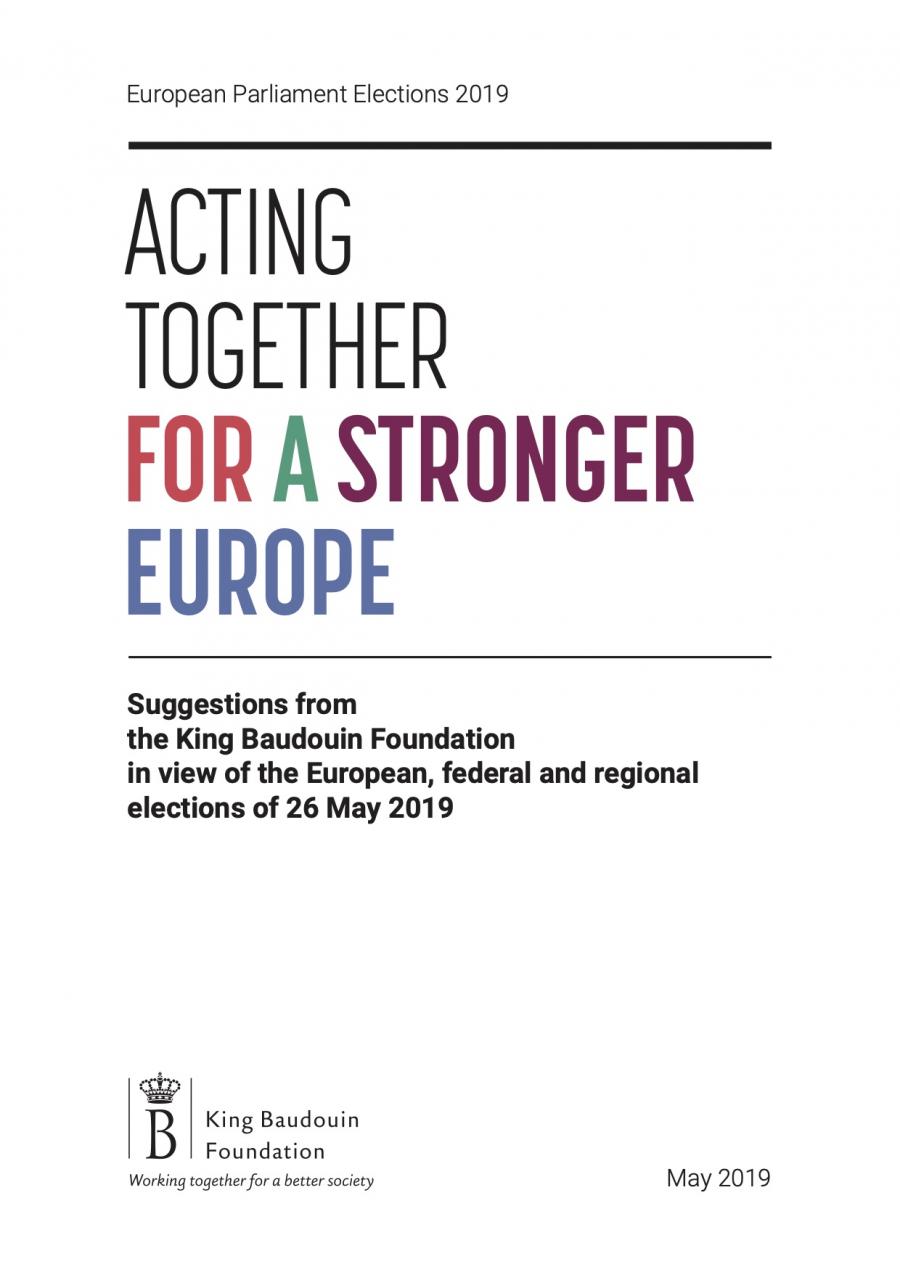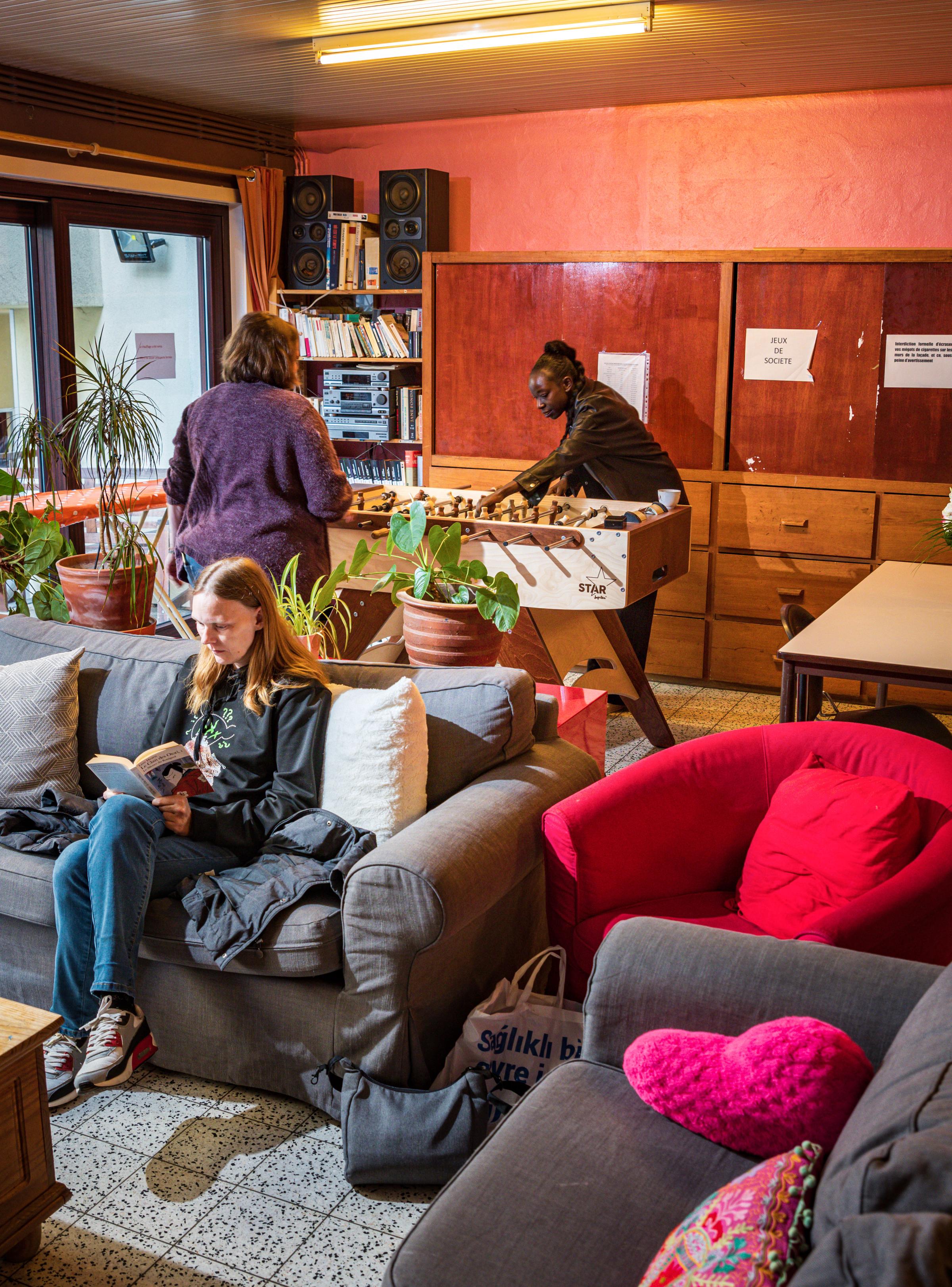
At Accueil Montfort, women in situations of exclusion find help and comfort
For 37 years, women in situations of social exclusion have been cared for by the Accueil Montfort centre in Jette. Today, the centre is seeing its budget whittled down by gas bills. The support offered by the King Baudouin Foundation is helping to soften the shock
Life is about to change for Khadidja. After two years spent at Accueil Montfort residential and care home in Jette (Brussels), she is getting ready to move into one of the commune’s social housing units. The 34 year-old woman is immensely proud: “This is the first time I shall be living alone” she remarks, before pointing out that it was during her stay at the centre that she became more mature: “I have regained my self-confidence and been able to take charge of my own life.”
Like most of the residents at Accueil Montfort, Khadidja’s life has been marked by violence and social exclusion. While they are at the centre, women like Khadidja find respite and, gradually, are able to rebuild their lives. "Here, we provide accommodation and support for each of the women to help them take charge of their lives. The only thing the women have in common is that they have no roof - or no longer a roof - over their heads. The loss of their home is often linked to complex and varied problems”, explains Catherine Massart, a social worker at Accueil Montfort.
The centre consists of two buildings that face each other. One of them, in which 16 women live, serves as a community care centre for the women when they first go to live there. Facing this, is another building divided into studio flats, where 18 women can live almost independently. Each studio has a kitchenette, bathroom and a balcony. Every year, more than 80 women find refuge at the centre. They have many different life stories, but each one of them has been damaged by life, through domestic violence, the trials and tribulations of addiction, or homelessness.
For Khadidja, this kaleidoscope of difficulties has been a provider of meaning to her own life: "Meeting other women enables you to realise that you’re not alone.” The centre regularly provides collective activities, including fitness and theatre, workshops on self-esteem and a monthly discussion group.
Step-by-step towards independence
Everyone aims to regain their independence, each at her own pace. Care for each woman here can last up to two years. The social work aspect takes place over the long term, helping the women to establish the foundations of a more stable and secure life. “Our objective is to leave a positive mark in the lives of the people we care for”, summarises Elisabeth Deladrier, the Director of Accueil Montfort. She knows that the residents will not leave the centre with an apartment and a job contract, “But they will have been marked by their time here”, she says“Whether it is that of having been treated for drug or alcohol addiction, having sorted out various administrative problems, or getting psychological support.”
The support provided always focuses on the individual resident’s own project. This might be some form of training, following up on education, looking for work. Everything is good to get a new start in life. Finding work and an apartment are the objectives of Murielle, who has been at the care home for over a year, following years of living in the street after she lost her job in the hospitality sector. Little by little, Murielle is getting back on her feet. “They’re like family here”, she confides. “The team brings me so much, they give me a boost.”
"This support helps soften the blow and avoids us having to increase the residents’ financial contribution.”
However, the well-oiled machine of the care home – which has existed since 1985 – has been seizing up over recent months. The cause is the rise in energy prices. “Our centre is a place for living, so our energy consumption is high and we can’t really reduce it significantly”, the Director regrets. The gas bills at Accueil Montfort have shot up from 21,000 euros to over 34,000 euros in just one year and the latest price increases have not even been counted yet. Elisabeth Deladrier is pleading for the social tariff to be applied to associations like hers. Meanwhile, emergency help of 5,000 euros from the King Baudouin Foundation is enabling the centre to cushion the shock of the price increases and avoid having to increase the financial contribution of its residents. The donation means that residents can continue to use the communal room, heated appropriately, where friendships are created and lives are re-built.
The KBF ‘Poverty - energy crisis’ call
Given the energy crisis, the King Baudouin Foundation has launched an urgent call for projects to provide rapid support to organisations that fight poverty and which are confronted with increasing costs and requests for help from the most vulnerable people. The aim is to enable such organisations to maintain the care and support they provide for those in need of help. A total of 494 organisations have benefited from support, amounting to a total of 3.16 million euros. Accueil Montfort is one of the organisations to have benefited from support.
Other stories
Inspiring engagement!

Building a home for all in Forbidden Colours
Inclusion
"What I see with Forbidden Colours is this same desire to make sure that we can achieve this space where people are not excluded, where it's not ‘us against them’ but ‘what connects us to them’?"
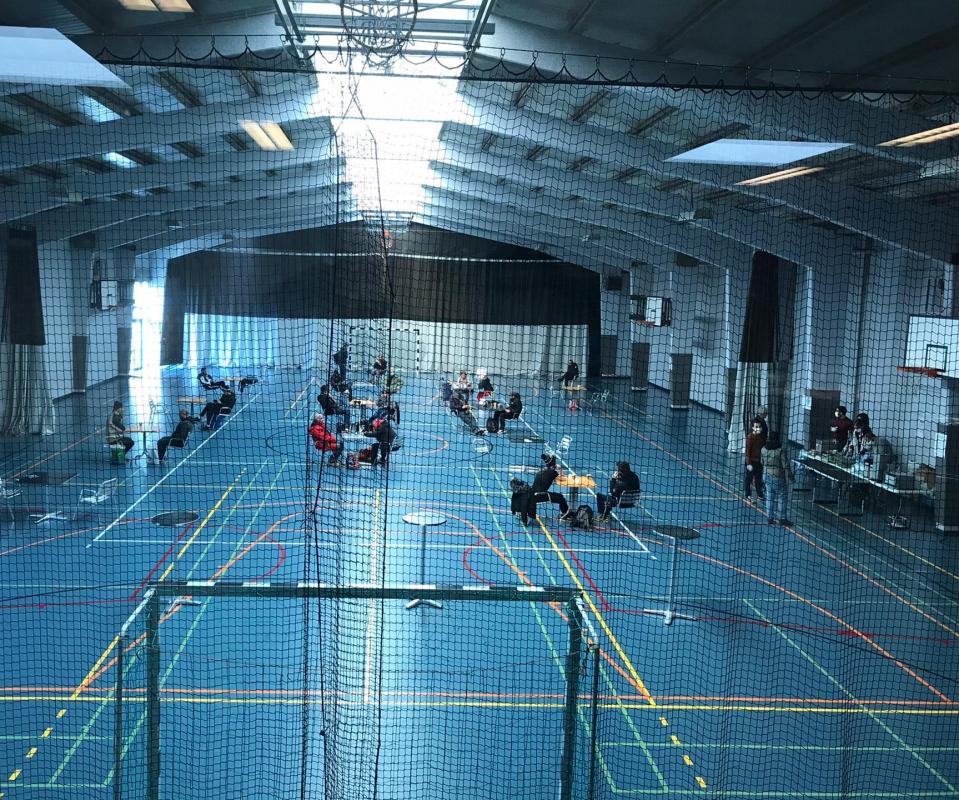
Comme Chez Nous: emergency social care during the COVID-19 crisis
Inclusion
"The support we received is enabling the association to breathe a little more easily and deal with the most urgent expenses."
Other publications
Other philantrophy
Baan Vier (Fund Friends of)
Philanthropists support Baan Vier projects with the aim of stimulating the motoric development of children and increasing their self-reliance in the water.
College of Europe (Fund Friends of)
Philanthropists provide a full or partial scholarship for a student studying diplomacy, economics, politics or law at the Europa College.
AFS Belgium Fund (Friends of Funds)
Philanthropists support exchange and training projects of the non-profit organization AFS Foundation that contribute to greater tolerance, peace and respect for diversity.
Other press releases
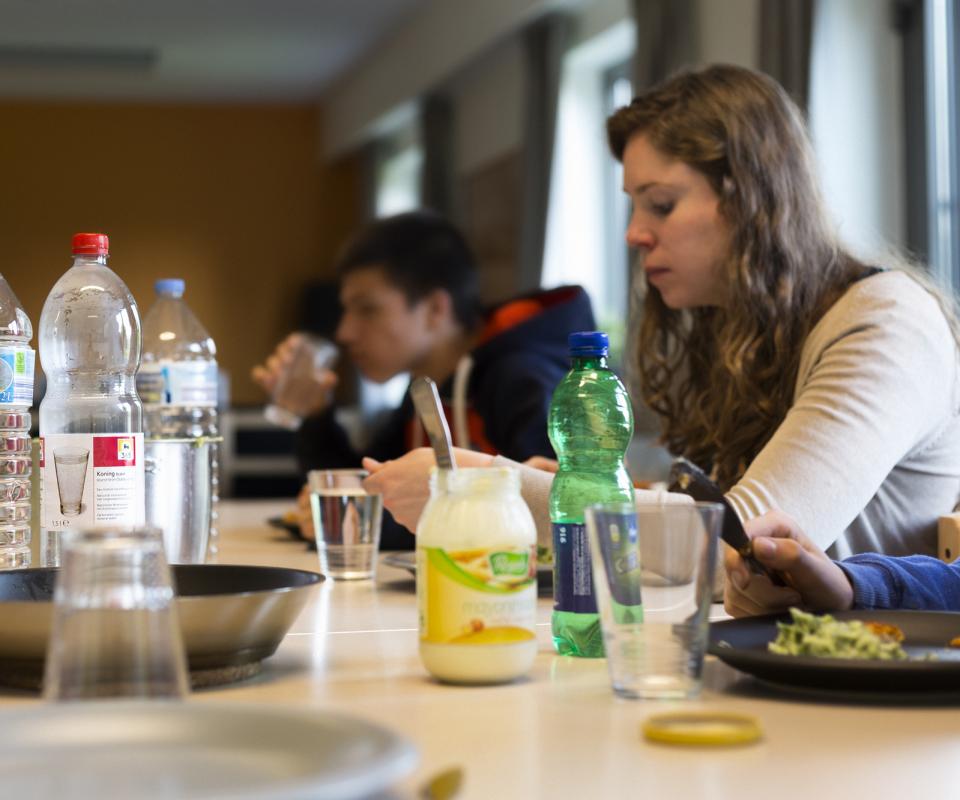
When only solidarity enables you still to eat
In response to the challenges facing the food aid sector, the KBF is supporting 71 organisations, for a total of €500,000.

Inequality among Belgians regarding use of digital essential services
Inequality among Belgians regarding use of digital essential services. A study conducted on the initiative of the KBF gives an overview of inequality linked to the use of these s…
